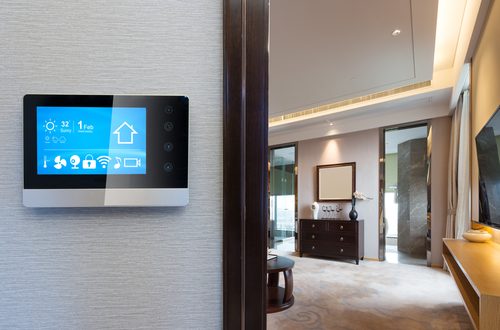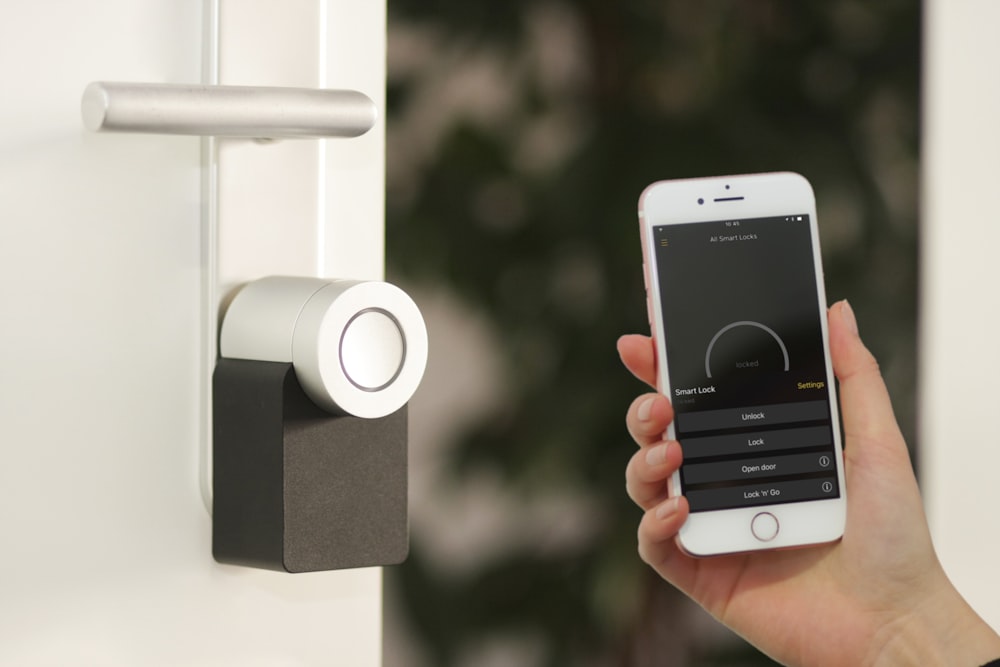These days, technological advancements make it easy for us to manage our homes. From cooking to cleaning, there is a gadget or two that makes it easy to do our house chores.
No wonder there is an increasing number of innovative home features being developed.
What is a Smart Home?
The simplest way to describe a smart home is to have an advanced home system. We are talking about appliances that you can monitor via mobile app or turn on and off using voice activation.
Imagine being able to monitor your air conditioner’s electric consumption using your phone. Another example is being able to switch your lights on and off whenever you’re away to deter burglars.
But more than the convenience, a smart home is also a sustainable home. Here’s why:
1. Less wasted energy
When you think of running a smart home, you’d think that intelligent homes use a lot of energy to operate. However, plenty of smart homes use their appliances and gadgets to monitor and control their energy usage in their energy consumption.
For example, many gadgets and appliances are connected via smartphones. They can turn off any unused devices through a smartphone app even if they aren’t physically near these gadgets. That makes it a lot easier to conserve energy.
2. Temperature control
Our cooling and heating systems at home use quite a bit of energy. At the same time, many homes tend to have excess energy consumption when controlling their home’s temperature.
However, smart homes can be more sustainable through their temperature control capabilities.
For example, many smart homes have smart temperature controls that ensure that their temperature isn’t hotter or cooler than it should be.
These smart temperature controls will also turn on right before you come back home. That way, you come back to a comfortable temperature despite not being at home. That way, you don’t have to leave your thermostat on for more than you need it to be.
3. Water conservation
Aside from energy, smart homes are also able to conserve more water through their technological adaptations.
Some smart homes have leak detecting systems that monitor both the piping and even the water heaters. If there ever was a leak, owners will receive notifications as soon as possible so that these leaks don’t go undetected.
That means that your home won’t be wasting water unknowingly, and you won’t be spending money on water resources that leaked out of your pipes.
4. Alternative energy source
Another reason a smart home is eco-friendly is that your appliances are likely energy-efficient. There are also smart appliances that use alternative energy sources. One of which is installing solar panels.
Given the many benefits of installing a solar panel, it encourages homeowners to take the first step of having a smart home.
With that said, it’s not only solar panels or solar power that smart homes can use as alternative energy sources. Homes can also use low-temperature geothermal energy to heat their homes more sustainably. All of these together make for a home that is more self-sufficient than others.
5. Improve air quality
One of the reasons a smart home is more sustainable is that it can help improve overall indoor air quality. You can get yourself a smart air filtration system to improve the air quality inside your house. This can bring fresh, outdoor air into your home while also filtering out things you don’t want coming in.
Ventilation systems aren’t the only gadgets that can improve air quality in your home.
There are even smart gadgets and tools that can help improve your air quality through cleaning. One that we often recommend to our clients at Maid Sailors Austin Maid Service is the robot vacuum. It ensures that your floor is sparkling clean, reducing the amount of sweeping you need to keep your home clean.
By keeping a clean home, you reduce the dirt, dust, and other unwanted particles that might be floating in your indoor air and reduce its air quality.
6. Energy efficiency
Smart appliances are a vital part of operating a smart home. These smart appliances can apply to anywhere, from your kitchen to your bathroom.
These smart appliances connect to your phone via an app most of the time and connect to your Wi-Fi for remote control. These smart appliances are easy to turn on and off even when you’re not at home. What’s important is that you’re connected to the internet.
Doing so ensures that you will always be able to control the energy usage of these smart appliances.
Over to You
Having a smart home allows you to do your part in saving the environment. That’s because you can monitor your energy consumption and use alternative energy resources.
If you are thinking of renovating or sprucing up your home, consider incorporating advanced home technologies. That way, you can lead a convenient and eco-conscious lifestyle.




-350x250.jpg)